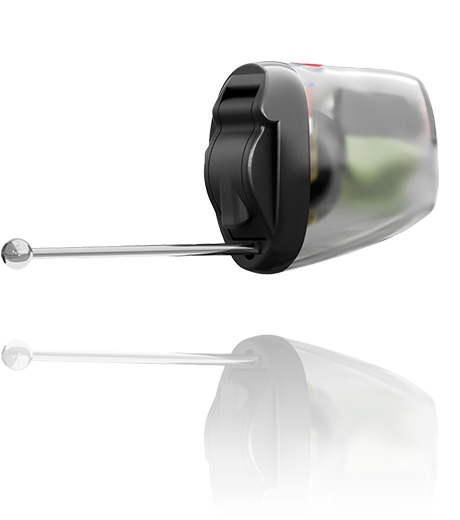The Connection Between Hearing Loss & Dementia

As we age and our bodies betray us, the last things that remain are the human voice and meaningful words. Speaking and listening are often the previous threads of connection we have.
Caring for someone we love who also has hearing loss and dementia can be particularly hard. How do you know if communication problems are caused by dementia, hearing loss, or hearing aids?
Vibrant Hearing is Western Montana’s answer to hearing problems. Thanks to decades of experience, we know how to treat patients suffering from hearing loss or dementia. For us, it’s about showing respect and compassion for aging clients. We aim to make the Twilight Years a joy. So, what can we do? The first step is understanding.
The Impact of Hearing Loss on Cognitive Functions
Hearing loss forces the brain to allocate more resources to process sound at the expense of other cognitive functions like memory and thinking. This can lead to mental overload, which may accelerate cognitive decline. Think of it like overloading a circuit.
These issues can also cause difficulty in communication. Frustration and anger can boil over quickly with patients suffering from the devastating one-two punch of hearing loss and dementia.
If you’re a caretaker or a loved one, practice patience, understanding, and compassion.
What Can Be Done with Hearing Loss and Dementia?
It is virtually impossible to separate the hearing loss from progressing cognitive decline. A properly functioning and well-fitting hearing aid will assure you you are doing your best—team up with the audiologist to plan and try the following techniques to help.
Enhanced Communication Skills
Over time, a person with dementia or Alzheimer’s will have more trouble understanding long, complicated sentences or messages. Keep the message short and maintain eye contact. Use nonverbal cues such as gestures to aid in communication. Visual aids can also help remind or explain tasks and schedules.
Ask for Help in Care Facilities
Dementia patients are often enrolled in care centers to help with long-term treatment. This can be scary for many people and helpful for others. Regardless, the goal is to provide nearly around-the-clock care. Ask for help in these facilities.
For example, if your loved one is in a care facility, mealtimes can be the most frustrating, as the dining rooms are often untreated and have terrible acoustics. Ask the staff if your parent or relative can be seated in a quieter corner with another resident or special friend.
Hearing Aids and Other Audiologist Solutions
Early diagnosis and continuous treatment of dementia and hearing loss are vital for patients. Hearing aids can dramatically improve life quality by enhancing communication abilities. They must be regularly checked and adjusted to suit the individual’s hearing needs.
Ask for a hearing aid care kit that includes a listener, and have the audiologist show you everything you need to know about caring for hearing aids. You can also ask your audiologist about hearing aid alternatives. Many assistive listening devices aren’t delicate or easily lost.
Also, long-term care with an audiologist is valuable. The audiologist considers you part of their team, so let them be yours. Audiologists care deeply about providing the best communication between their patients and those who love them, and they are willing to help make it possible in any way we can.
If other caretakers are involved, invite them to the audiologist’s office for training or ask them to visit the care facility to teach the staff how to care for the hearing aids and communicate with the residents.
We Can Make Life Better
The object of the later years of life is to enjoy it to its fullest. With the specialists and experts at Vibrant Hearing, we can help you or your loved one live a happy life. Contact us today to get started with an appointment so we can better understand your needs.

